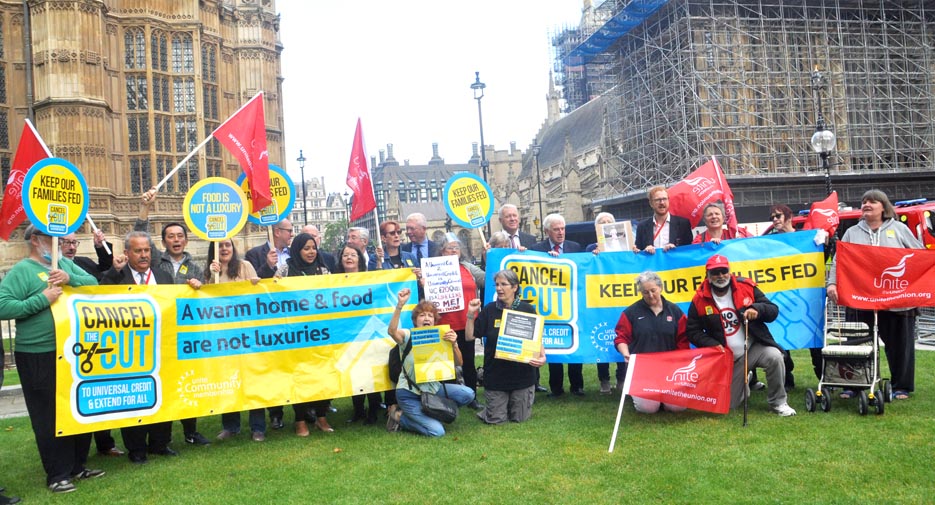
TORY PM Johnson faced splits in his ranks as Conservatives opposed the £20 a week cut to Universal Credit in a vote in Parliament that took place last night.
The huge hike in inflation means that the £20 cut is even greater as the cost of living soars.
Moving the cut, Tory Work and Pensions Secretary Therese Coffey said: ‘We know that work and progressing in it is the best route out of poverty.
‘We now have a unique opportunity with over one million vacancies in the labour market to help people move into new and better paid jobs, raising their earnings and building their financial resilience.
‘We will continue to deliver our plan for jobs as we build back better and fairer – a working Britain is at the heart of a Britain that works.’
Angela Eagle, Labour MP for Wallasey, intervened: ‘Will she explain to the House why that, if everything is reasonable and as it should be, her six predecessor Conservative secretaries of state for the Department of Works and Pensions have all come out against this cut?’
Coffey replied: ‘In the letter that I have seen signed by my six predecessors, they were keen to have the extra support that had gone in remain, not specifically talking about the extra £20.’
However one of the signatories, Stephen Crabb, Tory MP for Preseli Pembrokeshire, told the House of Commons: ‘My views have not really changed since the last time we debated this issue and voted on it.
‘On that occasion I voted against the government for the first time ever because I felt so strongly about the course of action that we were intending to carry out, about the impact that it would have on workers on low incomes and their families up and down the country.’
‘One of the reasons that in-work poverty increased in the years leading up to the pandemic,’ he admitted, ‘came directly from decisions that I was involved in making when I was the Work and Pensions Secretary, that we had frozen the main rate of benefit that supported families on low incomes. If you look at the data, if you look at the evidence, it is unavoidable.
‘Anyone who thinks that we have generous benefits in this country is wrong. Either looking at it internationally, or looking at it historically, in no way can you describe UK benefits as generous, we don’t.
‘And I do worry that in this debate this afternoon, there is this view that if you can only just make welfare that bit tougher, that bit more uncomfortable for families who rely on it, you will see more people going out to work. The evidence does not point to that either.’
Labour MP for East Ham, Stephen Timms said: ‘The rise in inflation and the government’s cut will mean a real terms fall in people’s incomes, a fall steeper than at any time since Margaret Thatcher was PM.
‘Now the economy has grown in real terms by over 50% since then, but the government’s proposals mean that support for working families will not have grown at all over those 30 years. It will be about one seventh of average earnings, the lowest since 1948.
‘Actually, if you go back to 1911 when unemployment benefit was introduced, it was at a higher level when compared to average earnings than it will be if this cut goes ahead.’
Meanwhile outside Parliament, a crowd of 50 Unite Community, Unison members and Universal Credit claimants protested against the cut – demanding that the £20 uplift remains.